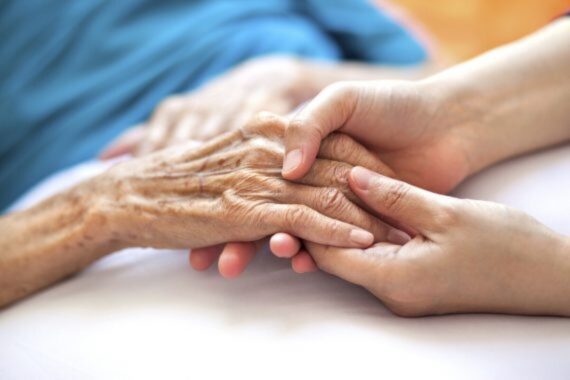Half of doctors remain concerned about changing laws on assisted dying

Nearly half of UK doctors think that a physician-assisted dying (PAD) law ‘would negatively impact the medical profession’, a new survey has found.
More than 1,000 GMC-registered doctors responded to an online survey last month, which asked for their views on whether PAD should be legalised and explored to what extent they would be prepared to be involved in the process.
Around 48% of respondents were against legalising it, while nearly 45% said they supported the prospect, and (47%) said a PAD law would negatively impact the medical profession.
The survey, which spanned seven days and was conducted by Doctors.net.uk, found that concerns raised among those opposed included ‘a risk of undermining trust’ between doctors and patients, conflict with colleagues, ‘increased administrative workload’ and ‘a change to the ethos of medicine’.
It also asked how involved in the process doctors would be willing to be, should assisted dying be legalised.
It found that three in 10 doctors would be ‘unwilling to provide information or have a discussion with a patient’ about PAD.
The survey’s results said: ‘Nearly six in ten (58%) said they would provide information or have a discussion with a patient about it, with three in ten unwilling to do so. A minority of respondents said they would be willing to go further, by either prescribing or administering lethal drugs.’
The two most popular reasons against legalising PAD given by the survey’s responders were ‘to protect vulnerable people from risk of coercion’, and because the ‘focus should be on improving palliative care’.
Among those responding in support, more than nine in ten said ‘to prevent suffering’ and ‘to give patients dignity in their final days’ were reasons they held that view.
More than a quarter (26%) thought legalising PAD would have a positive impact on the medical profession, but nearly half (47%) thought the opposite, and one in ten (11%) believed it would have a neutral impact, while 16% were unsure.
Physician-assisted dying is currently an offence in England, Wales and Northern Ireland. In Scotland, a person assisting in a suicide can be prosecuted under related crimes, such as murder.
As a new law is expected to be proposed in Scotland, and at Westminster, the Health and Social Care Committee is preparing to publish findings from its inquiry into assisted dying/assisted suicide.
In 2021, the BMA said it would move to a neutral stance on physician-assisted dying.
A BMA survey in 2020 found that GPs were ‘generally more opposed’ to physician-assisted dying than other doctors.
Visit Pulse Reference for details on 140 symptoms, including easily searchable symptoms and categories, offering you a free platform to check symptoms and receive potential diagnoses during consultations.
Related Articles
READERS' COMMENTS [1]
Please note, only GPs are permitted to add comments to articles










Odd choice of framing in the headline and first sentence.
Given that the status quo is the existing law, surely the more interesting fact is that half of doctors want to see a change to the existing laws?